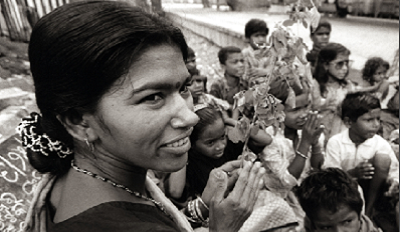
A policy brief released today by the International Labor Rights Forum urges governments, employers and worker organizations to support a new International Labour Organization (ILO) Convention and Recommendation to address gender-based violence in the world of work.
Gender-based violence is a common and pervasive human rights violation that threatens workers’ wellbeing and productivity. Physical, verbal, psychological or sexual violence is considered gender-based if it is directed against an individual based on their gender (including gender identity/expression) or affects persons of particular genders disproportionately. The World Health Organization estimates that 35% of women around the world have experienced sexual or physical violence at home, in their communities or in the workplace in their lifetime. An EU-wide survey conducted by the European Agency for Fundamental Rights found that 11% of women who have experienced physical or sexual violence by a non-partner indicated specifically that the perpetrator was from a work context, either a supervisor, colleague or customer. In certain sectors, the number of women who have experienced sexual harassment at work is much higher.
In June of 2018, the International Labour Organization (ILO) will hold a first discussion on a potential new ILO instrument on gender-based violence at work at the International Labour Conference in a committee composed of governments, employers and worker representatives.
ILRF’s policy brief argues that the ILO should adopt the strongest instrument available – a Convention, supplemented by a Recommendation – and focuses on how a new binding international standard would provide new strategies and tools to overcome the challenges that women and other marginalized people face in accessing the right to work free from gender-based violence.
At a briefing hosted by Congresswoman Sheila Jackson Lee (D-TX) today, Judy Gearhart, Executive Director of the International Labor Rights Forum, said: "We need an international standard that specifically addresses this problem because currently there is a tremendous lack of clarity on how to define it, identify it, and ensure victims have access to remedy. An international standard will help drive the awareness raising and critical legal reforms we need to diagnose and treat this cancer in our society."
In the policy brief, ILRF identifies gaps in international norms, national laws, and corporate commitments that allow gender-based violence in the world of work to continue unchecked. The brief also makes recommendations for governments, employers and trade unions to improve prevention and remediation of gender-based violence.
